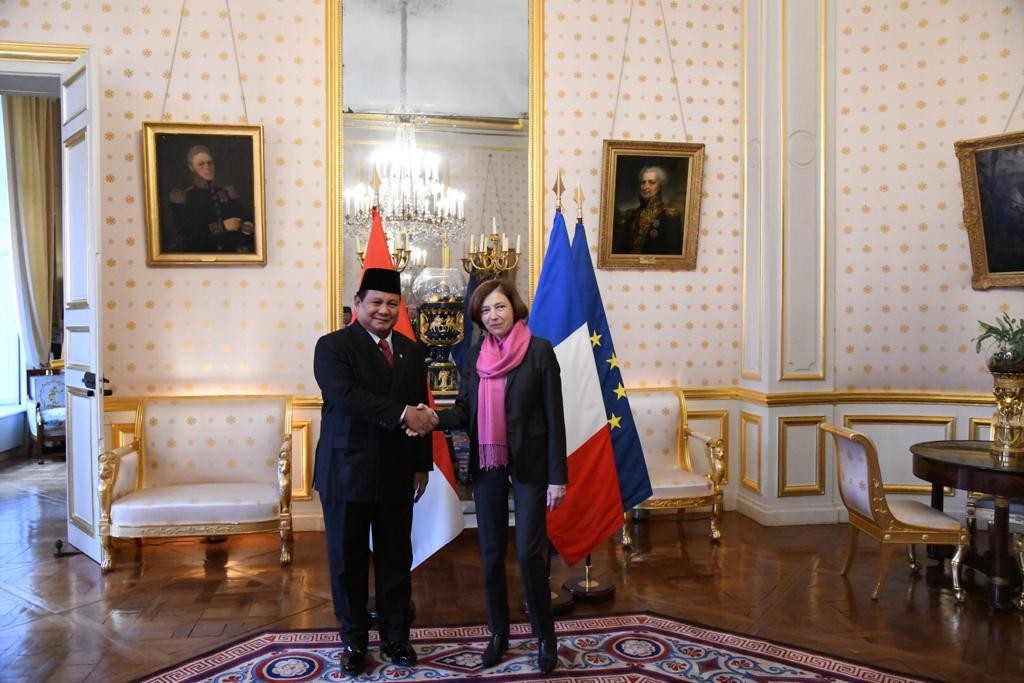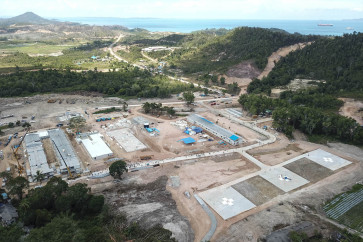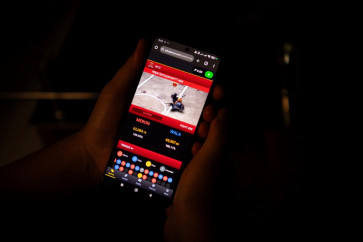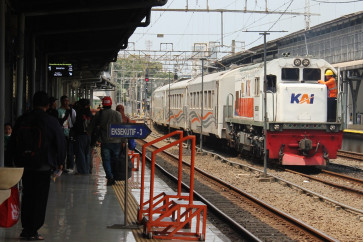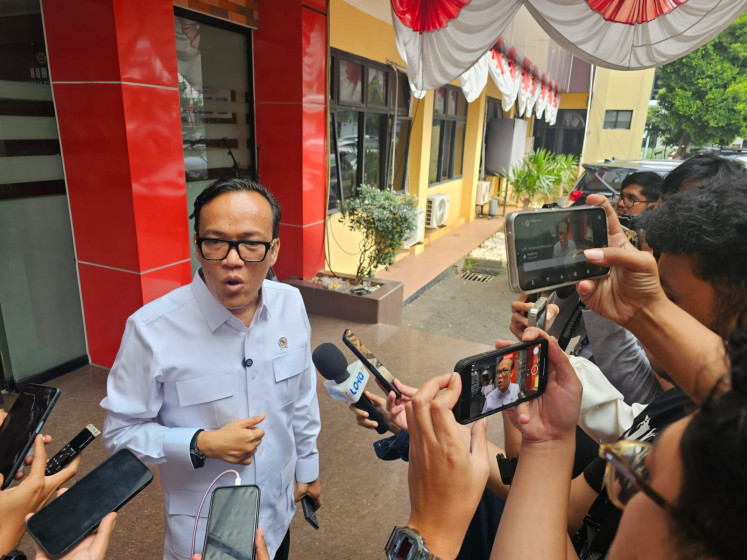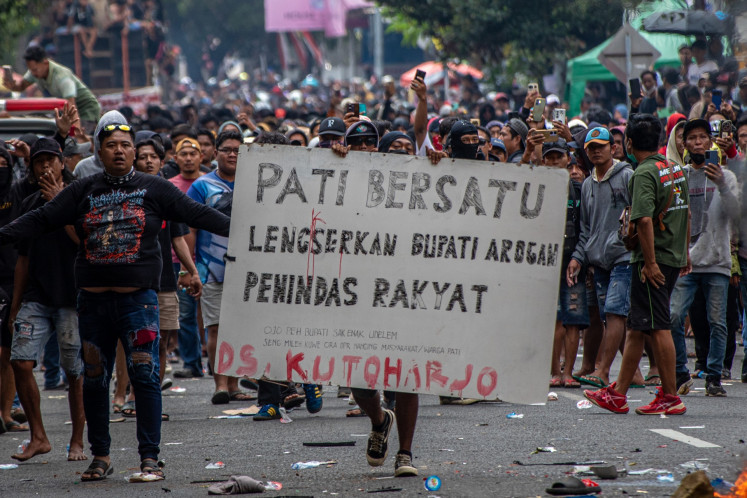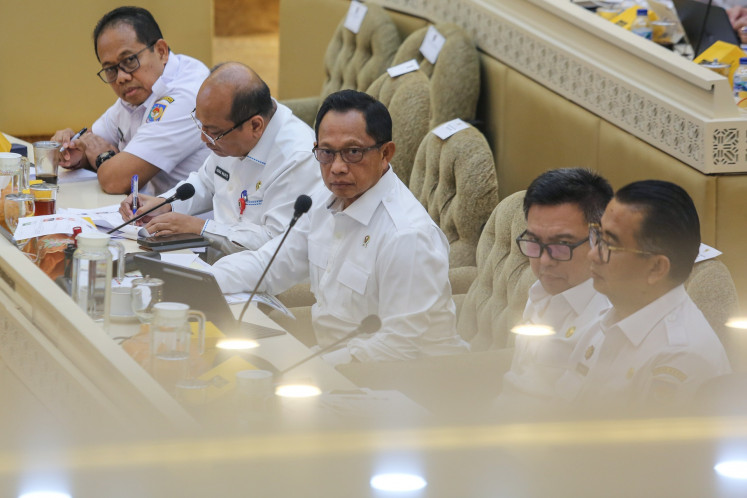Popular Reads
Top Results
Can't find what you're looking for?
View all search resultsPopular Reads
Top Results
Can't find what you're looking for?
View all search resultsDefense procurement ToT deals pave way for strategic autonomy
Amid the ongoing global polemic, Indonesian can seek to increase its strategic autonomy via ToT programs as part of its defense procurement deals.
Change text size
Gift Premium Articles
to Anyone
T
he Russian invasion of Ukraine has revived debate in many countries on strategic autonomy and their reliance on partners and allies.
While Kyiv has received support from its partner nations through the steady delivery of military equipment and weaponry, such as anti-tank weapons, man-portable air-defense systems (MANPADS) and support equipment, Ukraine has also seen several countries turning to focus on their immediate interests, which are not compatible with alienating Russia.
For instance, Tel Aviv is banning other countries from sending Israeli-made weapon systems to Ukraine in order to maintain good ties with Moscow. Meanwhile, it took Germany weeks to start delivering weapons to Ukraine as it weighed the pros and the cons of the policy amid its dependence on Russia’s energy supply.
Such cases show that military aid and the arms trade cannot be separated from a country’s foreign policy and national interests, and that countries should anticipate such risks.
Moreover, despite the steady delivery of military equipment to Ukraine, the high intensity of the conflict has shown that states should also anticipate such kinds of crises. It has also led several nations to rethink their ideas on strategic autonomy, a concept that originally focused on the defense industry.
The European Union defines strategic autonomy as a way to “chart its own course in line with its interests and values” in order to “manage interdependence in the best possible way”. The concept was mainly developed by France in the 1960s.
In other words, strategic autonomy grants a country the ability to face and handle major geopolitical disturbances and should be understood to be not limited to the defense and security sectors.
Indonesia has faced difficulties in the past that have hampered its autonomy and led the government to diversify its supply sources in terms of procuring military equipment. Jakarta adopted the policy in 1990s, when it was embargoed by the United States and its allies over human rights violations in East Timor.
As a result, Indonesia struggled with acquiring spare aircraft parts and challenges in its Humanitarian Assistance and Disaster Relief (HADR) operations, and this reportedly reduced the Indonesian Military’s (TNI) operational readiness by 50 percent.
Besides the US, the United Kingdom also prohibited Indonesia from using its Scorpion tanks for Jakarta’s military operations in Aceh. Since then, Indonesia has been purchasing its weapons from various countries, including Russia.
In recent times, the foreign policies of other countries’ remain a looming threat to Indonesia’s military modernization strategy. Jakarta’s plan to procure Sukhoi-35 combat aircraft from Russia has been deferred over the risk of being sanctioned under the Countering America's Adversaries Through Sanctions Act (CAATSA).
Keeping in mind that while political sanctions such as CAATSA are enforced to deter and prevent a country’s adversaries from obtaining key weapons systems and technology, controlling arms exports can also be seen as a way to not only maximize export opportunities, but also “control” its allies and provide room for political maneuvering in certain times.
In other words, restricting the trade in weapons can be perceived as a strategy to minimize the risk of partner countries from supporting adversaries in times of crisis.
In the meantime, Indonesia has been focusing for years on developing its strategic autonomy and the benefits it could gain through it. Actually, Indonesia can rely on Law No. 16/2012 on the defense industry to strengthen its strategic autonomy. The law obliges suppliers to provide offset or transfer of technology (ToT) programs as part of defense procurement deals.
The recent acquisition of Rafale combat aircraft and the signing of a memorandum of understanding (MoU) on the procurement and domestic development of Scorpene-class submarines have opened a path for Indonesia to strengthen its strategic autonomy through key French defense technologies. In fact, Jakarta could opt for the most beneficial offset programs that will not only benefit the TNI and the national defense industry, but also the civilian sector through dual-use technologies.
One of the ToT programs that Indonesia could get from the submarine deal is lithium battery technology that could also be developed and used for commercial purposes to eventually develop the country’s battery industry. It is important to note that Indonesia is the world’s main producer of nickel, a key material in producing lithium batteries.
As the government of President Joko Widodo aspires to turn the country into the global hub of the battery industry, such key technologies acquired from defense procurement deals further emphasize that batteries could become a “strategic product” for the country’s economy and trade. By doing so, Indonesia will be able to produce lithium batteries for the domestic automotive industry and eventually expand export capacity.
Second, by obtaining relevant ToT programs and the ability to produce modern and high-tech defense equipment, Indonesia will be able to reinforce its strategic autonomy through the defense modernization program. Therefore, the ongoing partnership with France makes sense. Since early 2022, France’s top defense officials have visited Jakarta, the latest being its head of strategy at the Armed Forces Ministry, Alice Guitton.
On the other hand, Defense Minister Prabowo Subianto met with French President Emmanuel Macron in Paris in March and held talks with Armed Forces Minister Florence Parly during her Jakarta visit earlier this month to advance strategic bilateral cooperation.
In this perspective, defense procurement deals that are in line with the Defense Ministry’s long-term modernization program could certainly be a way to strengthen the country’s strategic autonomy. Amid the current geopolitical uncertainties, strategic autonomy matters in Indonesia’s quest for recognition in international politics.
To a greater extent, strategic autonomy could help the country protect its national interests and sovereignty, as well as boost its self-dependence, especially in times of crisis.
***
The writer is a research analyst on defense affairs at Semar Sentinel PTE Ltd. The views expressed are personal.

